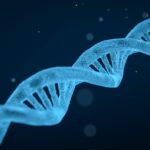According to researchers at the Institute of Neuroscience CSIC-UMH, in Alicante, and the Central Institute of Mental Health of Mannheim, in Germany, alcohol-induced brain damage progresses even after drinking cessation.
In the study, magnetic resonance imaging was used to assess the progression of brain damage of 90 German participants during the first weeks of drinking cessation. Neuroimaging results showed that six weeks after drinking cessation, alterations in the white matter of the brain continued.
“An important aspect of the work is that the group of patients participating in our research are hospitalized in a detoxification program, and their consumption of addictive substances is controlled, which guarantees that they are not drinking any alcohol. Therefore, the abstinence phase can be followed closely,” said Santiago Canals of the Institute of Neuroscience CSIC-UMH.
During cessation, researchers also found brain damage affecting the right hemisphere and frontal area of the brain. “There is a generalized change in the white matter, that is, in the set of fibers that communicate different parts of the brain,” Dr. Canals added.
“The alterations are more intense in the corpus callosum and the fimbria. The corpus callosum is related to the communication between both hemispheres. The fimbria contains the nerve fibers that communicate with the hippocampus, a fundamental structure for the formation of memories, the nucleus accumbens and the prefrontal cortex.”
“Although the detrimental effects of alcohol on the brain are widely acknowledged, observed structural changes are highly heterogeneous, and diagnostic markers for characterizing alcohol-induced brain damage, especially in early abstinence, are lacking. This heterogeneity, likely contributed to by comorbidity factors in patients with alcohol use disorder, challenges a direct link of brain alterations to the pathophysiology of alcohol misuse. Translational studies in animal models may help bridge this causal gap,” researchers stated.
The findings were published in JAMA Psychiatry.


